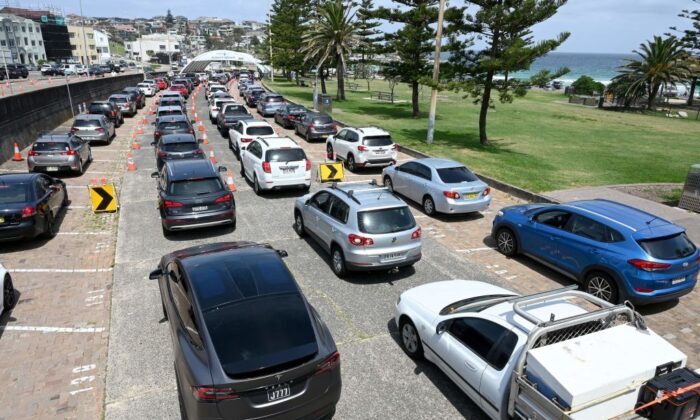Littleproud Warns of Higher Car Prices Due to Increased New Vehicle Emissions Tax
The policy establishes pollution benchmarks for car manufacturers, with penalties of $100 per gram of CO₂ per kilometer that exceeds the limit.
Amidst rising living costs, Australians are preparing for additional financial pressure due to the implementation of the Albanese government’s New Vehicle Efficiency Standard (NVES), warned Opposition Leader David Littleproud.
Effective as of January 1st, the policy sets pollution benchmarks for carmakers and imposes penalties of $100 per gram of CO2 per kilometer that exceeds the threshold.
David Littleproud, Nationals Leader, criticized the NVES, stating that it would lead to a significant increase in vehicle prices.
He expressed his concerns on Sky News, saying, “The government is introducing the Vehicle Emissions Standards, expecting almost all Australians, except for about one or two percent of us, to be driving EVs by 2050, which is absurd.”
Littleproud highlighted the impact on popular vehicles, mentioning, “The Ford Everest’s purchase price will increase by $6,000 this year, rising to $18,000 as [the NVES] is phased in. And then the Rav4… That’s going up by almost $3,000, reaching over $11,000 during this phase-in period.”
Challenges for the auto sector
The Chief Executive of the Motor Trades Association of Australia (MTAA), Matt Hobbs, raised concerns about the challenges posed by the NVES for manufacturers.
“The targets set forth in the Bill will pose significant challenges for car companies, underscoring the necessity for continuous review,” stated Hobbs.
Although some support has been provided through federal budget measures, additional assistance is required to assist automotive retailers in adapting to the new standards.
Research commissioned by MTAA and the Australian Automotive Dealer Association (AADA) predicts major obstacles for leading manufacturers in meeting the NVES by 2029.
According to a study by Blue Flag, the top three Original Equipment Manufacturers (OEMs), responsible for 400,000 sales in 2023, will struggle to meet the stringent CO2 emissions targets without significant modifications to their models and powertrains.
Data indicates that 19 out of 49 OEMs will face substantial challenges, with an additional 18 likely to fall short. Only 11 OEMs are projected to meet the targets, with the majority selling fewer than 5,000 cars annually.
Government defends emissions targets
The Minister for Climate Change and Energy, Chris Bowen, defended the NVES, highlighting its environmental and economic advantages.
“The New Vehicle Efficiency Standard is expected to reduce emissions from new passenger vehicles by over 60 percent by 2030,” he affirmed.
Bowen also emphasized the policy’s potential to save money for motorists, stating, “Motorists are estimated to save around $95 billion in fuel costs alone by 2050, with a projected reduction of approximately 321 million tonnes in CO2 emissions from the transport sector.”
Dismissing opposition arguments, he remarked, “The Liberals and Nationals have consistently opposed this, preferring for Australia to remain one of the few advanced economies, along with Russia, not to ensure greater access to more cost-effective vehicles.”
The policy only applies to new vehicles, with Bowen noting that it would expand Australians’ access to a wider range of petrol, diesel, hybrid, and electric vehicles.
Meanwhile, in an effort to promote the adoption of electric vehicles, the Albanese government has introduced a $150 million initiative offering low-interest loans for EVs.
Targeting essential workers and individuals earning less than $100,000, the program offers interest rates that are up to 5 percent lower, potentially saving buyers over $8,000 on a $40,000 loan over a seven-year period.





